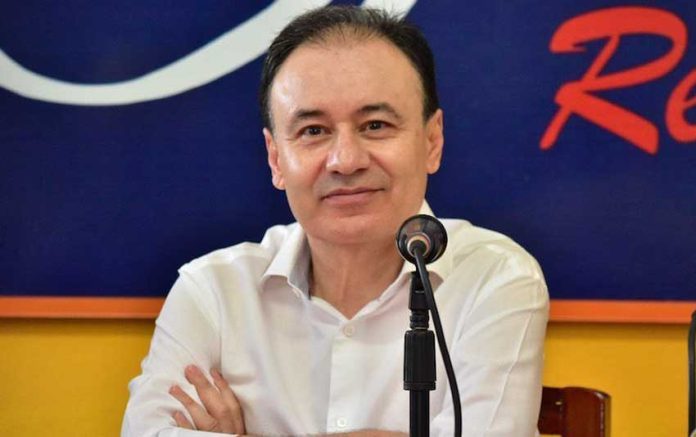A security collective made up of more than 300 organizations and individuals has applauded the incoming government’s plan to gradually withdraw the military from public security duties on the nation’s streets.
The #SeguridadSinGuerra (Security without War) collective also said that it is pleased that president-elect Andrés Manuel López Obrador’s proposed secretary of public security, Alfonso Durazo, has suggested that “training police [and] improving their socio-economic conditions” is a better path towards peace.
The proposed measures are in accordance with what “national and international organizations have recommended,” the group said.
In a television interview today, Durazo reiterated that the withdrawal process would be gradual and said that the new strategy would deliver results within three years.
“We can’t be naïve,” he added “because the only responsible way to withdraw the army from the streets is to train the [non-military] security forces.”
Durazo stressed that a key part of the strategy would be to put an end to the “vicious circle” of corruption that brings about more corruption as well as impunity and insecurity.
Although it praised the military withdrawal strategy, #SeguridadSinGuerra said that campaign promises to create a National Guard and to keep the Internal Security Law (LSI) — which formally authorizes the use of the military in domestic law enforcement — were cause for alarm.
“Independently of the possible resolutions of the Supreme Court about its constitutionality, the law doesn’t contribute to peace and its very existence threatens and inhibits the exercise of human rights as recent injunction rulings from the Supreme Court have indicated, and so its validity will continue to unnecessarily violate democratic order,” the collective said in a statement.
Durazo said the new government will wait for the Supreme Court’s definitive ruling before it decides what approach to take on the LSI but he stressed that whatever decision the court makes “we’re going to guarantee transparency, accountability and internal and external controls for all security forces.”
#SeguridadSinGuerra has spoken out on several occasions against the controversial LSI, which was passed last December, while international organizations have also warned that it increases the risk of human rights violations.
Mexico’s armed forces, including the army and navy, have previously been accused of forcibly disappearing civilians while carrying out public security duties and the United Nations said in May there are “strong indications” that federal security forces were responsible for the disappearance of 23 people, including at least five minors, in Tamaulipas between February and May.
In that case, it is suspected that the navy — which has long been considered the most professional and trustworthy of Mexico’s security forces — is responsible.
Former president Felipe Calderón launched Mexico’s war on drug cartels by sending the army into his home state of Michoacán shortly after he took office in December 2006 while current President Enrique Peña Nieto has also used the military for domestic public security purposes.
However, violent crime has only worsened.
More than 200,000 people have been murdered over the past 11 and a half years and 2017 was Mexico’s most violent year in at least two decades while this year is on track to be even worse.
#SeguridadSinGuerra added in its statement that the incoming government’s peace agenda must be backed by a coalition made up of a cross-section of society that includes victims of human rights violations.
It said López Obrador’s reconciliation process must build an agenda for peace with the participation of “the victims of our serious human rights crisis and those who accompany them, as well as academics, specialists and those who will form part of the new government and the next Congress.”
The collective also said the election results show that “the democratic mandate against corruption and impunity and in favor of justice and immediate peace-building has never been so clear.”
In addition, it said that all its members are willing to contribute to the peace-building process.
“We who form #SeguridadSinGuerra are fully ready to work with those who form the new government and with the elected lawmakers to overcome the [security] obstacles before December 1 and begin the most important process of ending the horror of more than 11 years of war.”
Durazo said the government will initiate a “comprehensive pacification project” that will include analyzing the possibility of an amnesty for some criminals, as López Obrador floated during the election campaign, although he stressed that it would ultimately be up to Congress to decide whether such a measure should be adopted.
Future interior secretary Olga Sánchez Cordero said this week that people who have committed high-impact crimes such as homicides, kidnappings and enforced disappearances would not be eligible for amnesty under any policy the new government might adopt.
Source: El Universal (sp), Milenio (sp), Animal Político (sp)
